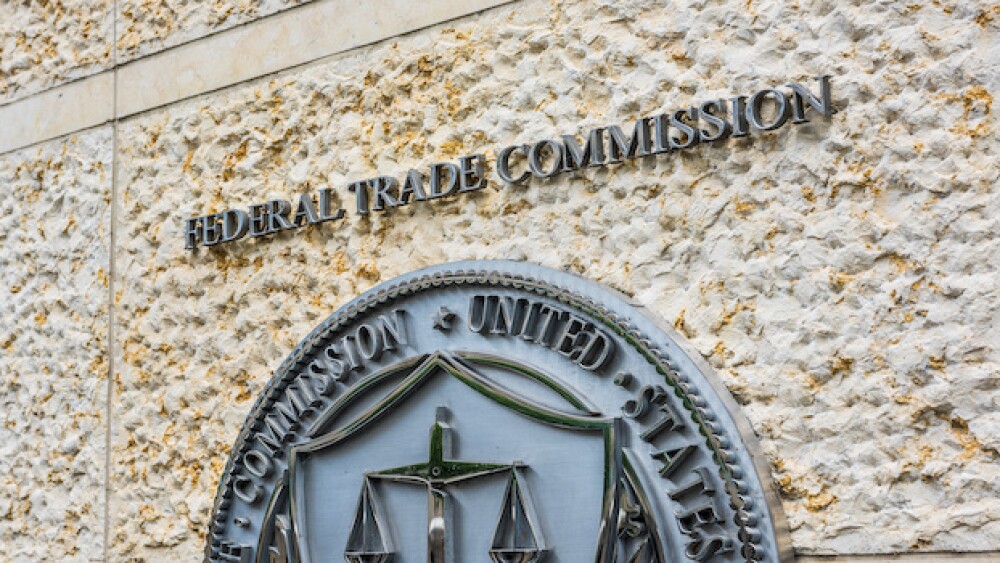Citing anti-trust issues, six states—California, Illinois, Minnesota, New York, Washington and Wisconsin—are joining the FTC’s legal challenge to Amgen’s nearly $27.8 billion buyout of Horizon.
Pictured: FTC sign on a wall/iStock
Six U.S. states are joining the Federal Trade Commission’s lawsuit seeking to block Amgen’s $27.8 billion buyout of rare disease biotech Horizon Therapeutics, Reuters reported on Thursday.
The acquisition “would allow Amgen to monopolize the market for certain crucial medications,” which would make these treatments less affordable and accessible to patients, Illinois Attorney General Kwame Raoul said in a statement. Illinois is one of the states joining the FTC’s lawsuit, along with California, Minnesota, New York, Washington and Wisconsin.
In the amended lawsuit, the six states and the FTC are asking the District Court of the Northern District of Illinois to issue a preliminary injunction against the Amgen-Horizon deal while the Commission prepares an administrative complaint, and until decisions have been made about the complaint. The plaintiffs are also seeking a temporary restraining order against the acquisition and any other related transactions.
“When drug companies try to unlawfully muscle out competition, it’s patients who suffer,” California Attorney General Rob Bonta said in a statement.
Amgen first moved to buy Horizon in December 2022 after beating out Sanofi and Janssen. The acquisition, initially valued at $26.4 billion, was the industry’s largest deal of 2022.
Soon after the agreement, however, government officials expressed strong objections to the deal. In January 2023, Sen. Elizabeth Warren (D-MA) sent a letter to the FTC flagging potential anti-trust violations of the acquisition.
In her letter, Warren flagged the companies’ “records of anti-competitive business practices” which could “cause further price increases on lifesaving drugs and prevent affordable alternatives from entering the market.”
In response to Warren’s letter, Jessica Akopyan, head of global media relations at Amgen, told BioSpace at the time that the company has been “working cooperatively” with the FTC and it remained “confident there are no anti-competitive aspects of this transaction.”
Still, last month, the FTC heeded Warren’s warnings and filed a lawsuit to prevent the acquisition.
Amgen is determined to push through with the acquisition. In a statement released after the FTC’s challenge, the company insisted that the “medicines offered by Amgen and Horizon generally treat different diseases and patient populations, and there are no overlaps of competitive concern.”
If Amgen overcomes these regulatory hurdles and closes the deal, it will gain Horizon’s monoclonal antibodies Tepezza (teprotumumab-trbw) and Uplizna (inebilizumab-cdon), approved for the treatment of thyroid eye disease and neuromyelitis optica spectrum disorder, respectively.
Tristan Manalac is an independent science writer based in metro Manila, Philippines. He can be reached at tristan@tristanmanalac.com or tristan.manalac@biospace.com.






